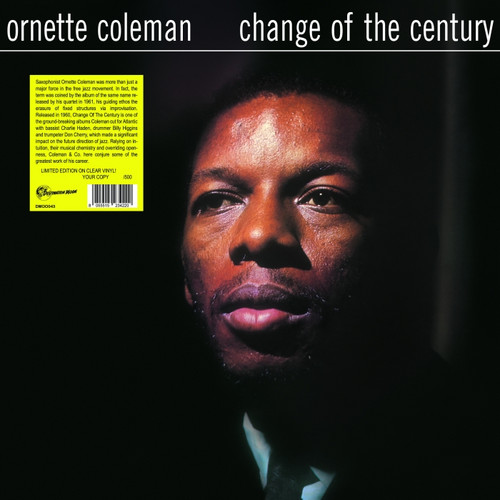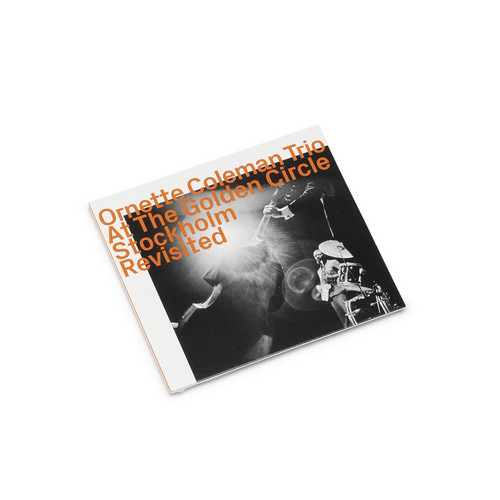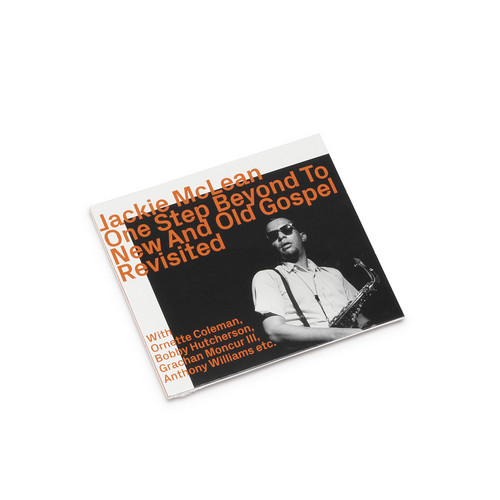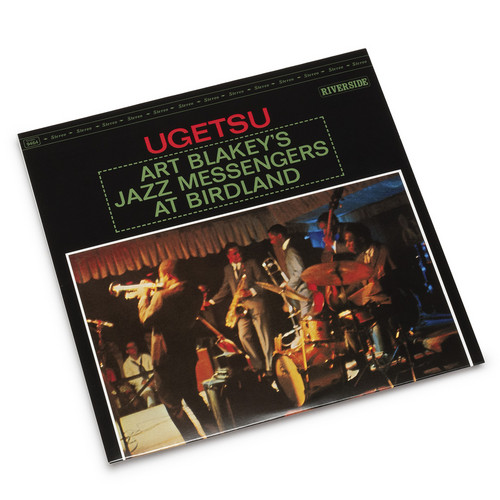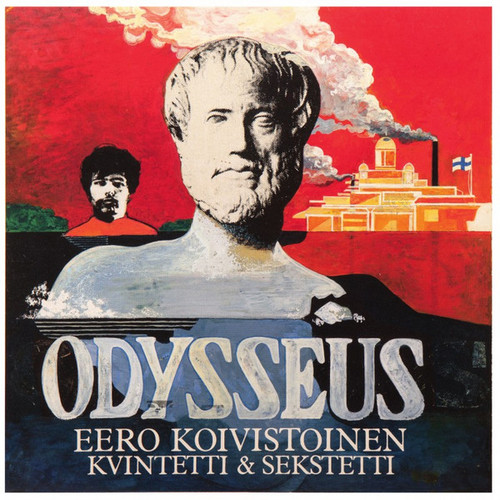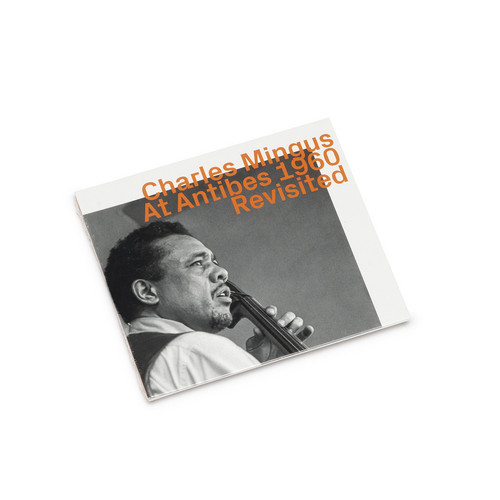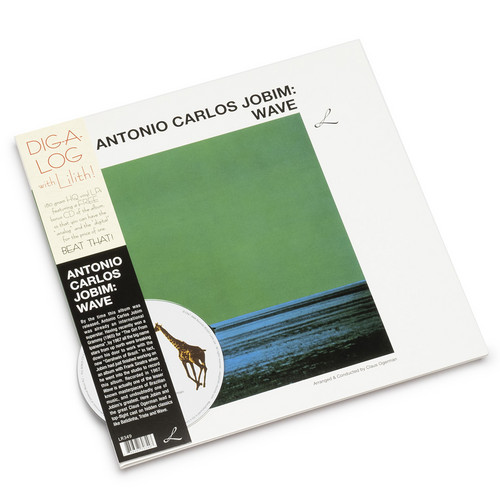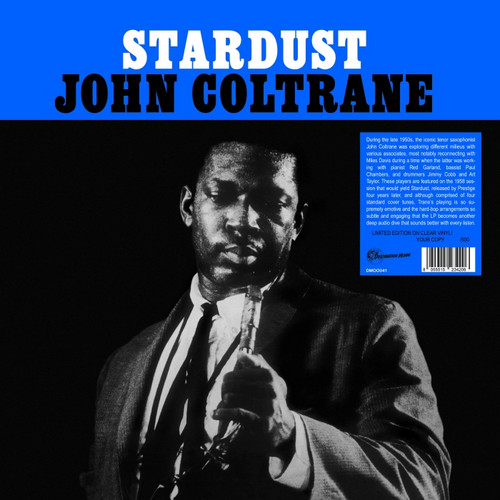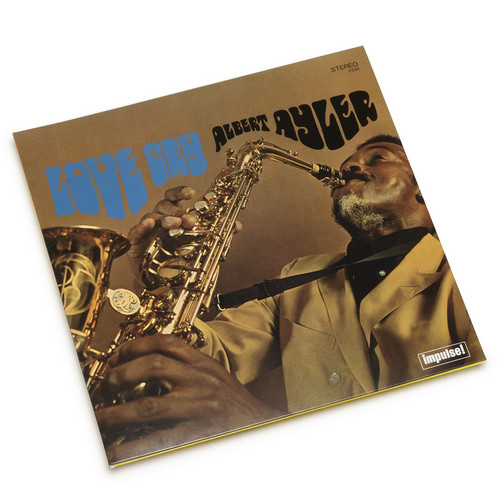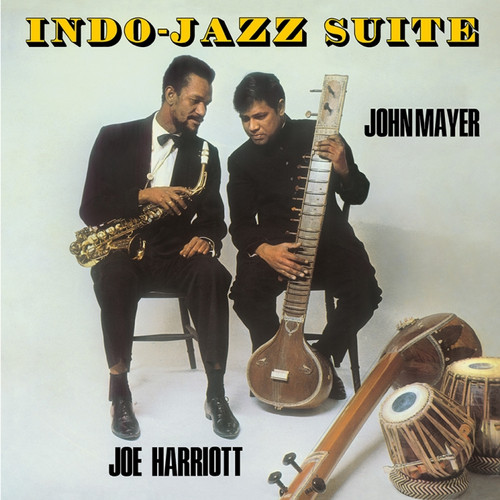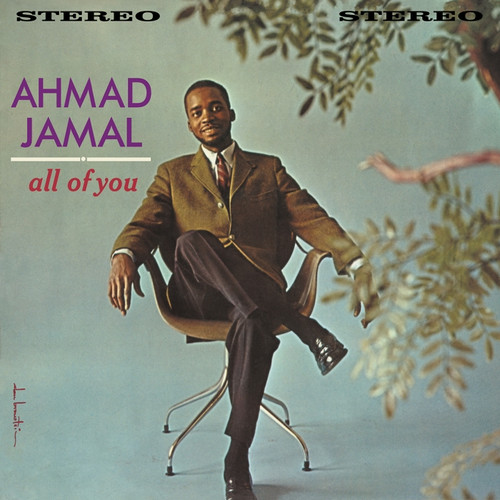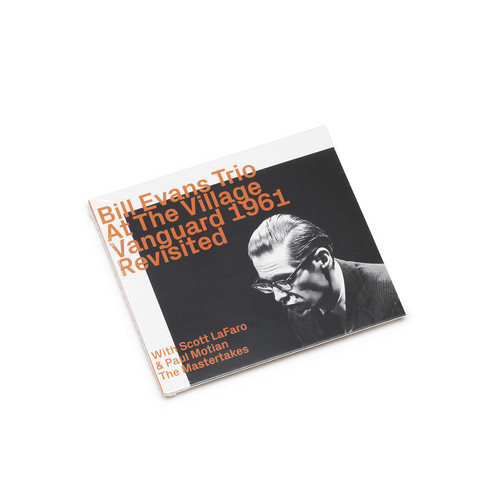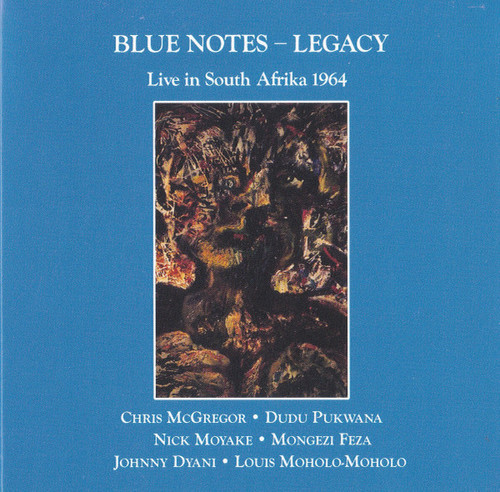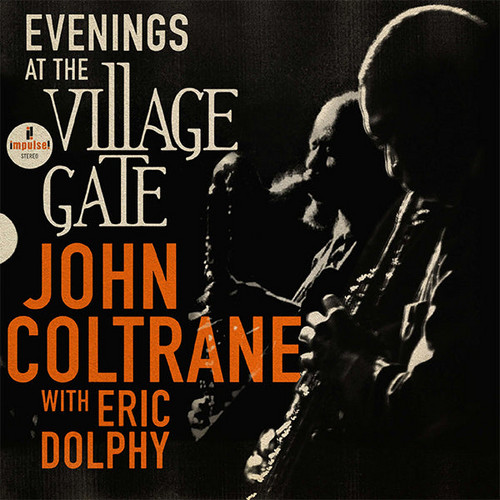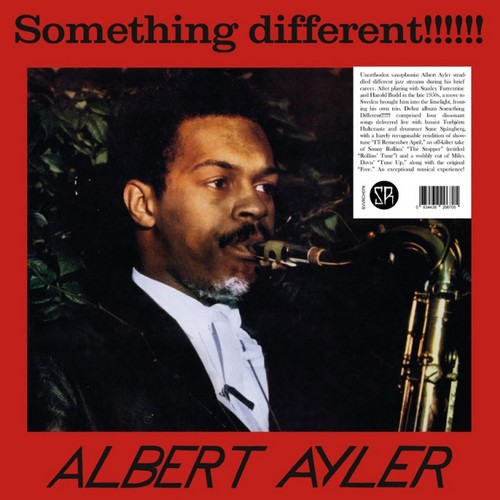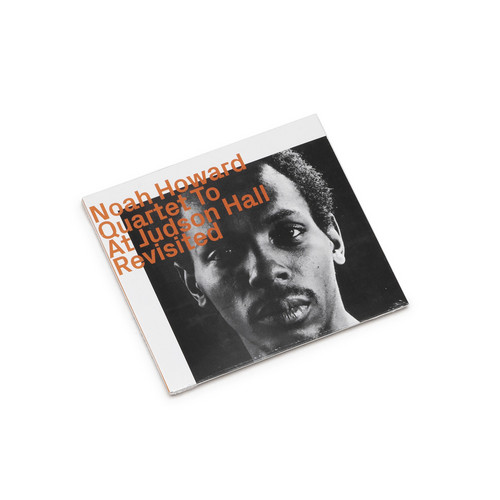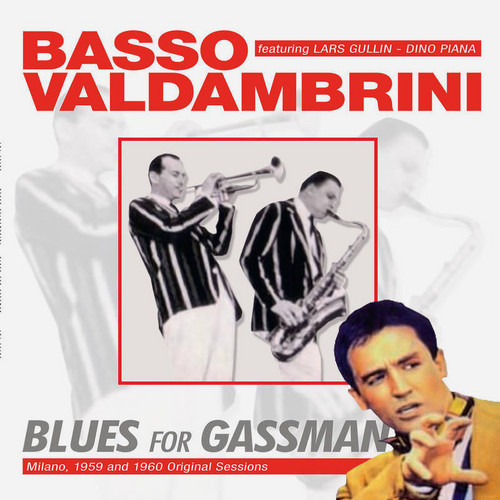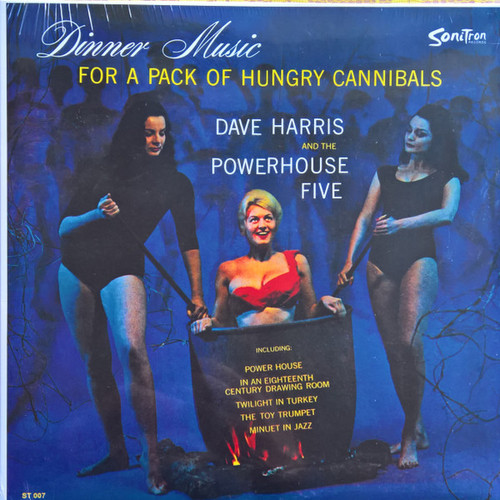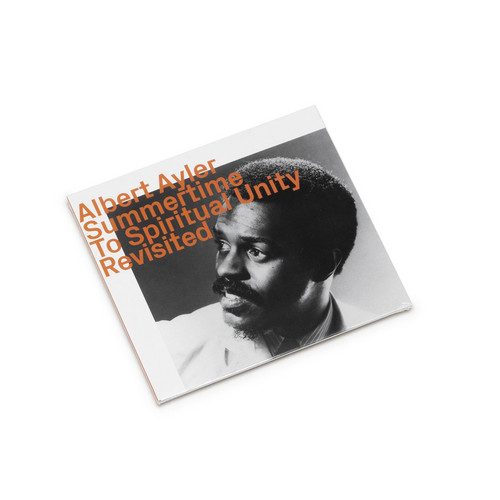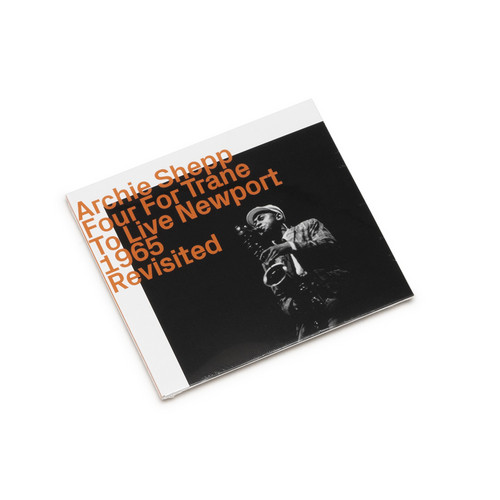Jazz /
Change Of The Century
Saxophonist Ornette Coleman was more than just a major force in the free jazz movement. In fact, the term was coined by the album of the same name released by his quartet in 1961, his guiding ethos the erasure of fixed structures via improvisation. Released in 1960, Change Of The Century is one of the ground-breaking albums Coleman cut for Atlantic with bassist Charlie Haden, drummer Billy Higgins and trumpeter Don Cherry, which made a significant impact on the future direction of jazz. Relying …
At The Golden Circle Stockholm (Revisited)
"For the followers of Ornette Coleman’s music, 1963 and 1964 were the lost years. His final session for Atlantic Records, Ornette on Tenor, was in March 1961, and though he played sporadic club dates in ’62, his self-produced Town Hall concert in December was to be his last significant appearance until he accepted a Village Vanguard gig in January 1965. The reasons for this hiatus, apparently, were personal, economic, philosophical, pragmatic, and artistic, all at the same time to varying degree…
One Step Beyond To New And Old Gospel (Revisited)
"One Step Beyond is rightly seen as a pivot point in Jackie McLean’s evolution, but its adventurousness was not without precedent. As A.B. Spellman noted in Four Lives in the Bebop Business, “Quadrangle” – the opening track for 1959’s Jackie’s Bag; it was first recorded as “Inding” for Lights Out!, a 1956 Prestige date – “involved an elaborate group construction that [McLean] was afraid was too far-out,” so he used “I Got Rhythm” changes to mainstream it, which he later regretted. His decision m…
Ugetsu
Ugetsu: Art Blakey's Jazz Messengers at Birdland is a live jazz album by Art Blakey and the Jazz Messengers released on Riverside Records in October 1963. The album was recorded at Birdland in New York City.
The original LP had six tracks and producer Orrin Keepnews stated in the liner notes that "there were other performances taped that night that couldn't be fitted into the resulting album". The Jazz Messengers' tour in Japan had ended a few months before this live performance; then the band d…
Odysseus
Odysseus, Eero Koivistoinen's first proper jazz album, gets its title from the wandering spirit of its songs, traveling from one mood to another. Performed by the Eero Koivistoinen Quintet & Sextet, because Koivistoinen wanted to extend his standard quartet (Koivistoinen-Sarmanto-Laine-Hietanen) to a quintet and invited trumpetist Bertil Lövgren to join. Also Juhani Aaltonen is questing on two tracks. Odysseus is an excellent, youthful package of forward-thinking jazz played by ambitious young j…
At Antibes 1960, Revisited
"Mingus the visionary composer. Mingus the virtuoso bassist. Mingus the volcanic bandleader. As the 1960s began, with the new decade bringing a radically expansive new view of the possibilities of jazz expression, Charles Mingus, by virtue of his brilliantly nonconformist creative imagination, willingness to take risks along experimental paths, and (because of, or in spite of) an oft-times confrontational rebellious nature, had established himself among those in the forefront of the music's mode…
Wave
By the time this album was released, Antonio Carlos Jobim was already an international superstar. Having recently won a Grammy (1965) for "The Girl From Ipanema", by 1967 all the big name stars from up north were breaking down his door to work with the new "Gershwin of Brazil." In fact, Jobim had just finished working on an album with Frank Sinatra when he went into the studio to record this album. Recorded in 1967, Wave is actually one of the lesser known masterpieces of Brazilian music, and un…
Stardust
During the late 1950s, the iconic tenor saxophonist John Coltrane was exploring different milieus with various associates, most notably reconnecting with Miles Davis during a time when the latter was working with pianist Red Garland, bassist Paul Chambers, and drummers Jimmy Cobb and Art Taylor. These players are featured on the 1958 session that would yield Stardust, released by Prestige four years later, and although comprised of four standard cover tunes, Trane’s playing is so supremely emoti…
Love Cry
Tip! Love Cry (1968) is a true Albert Ayler manifesto: a sometimes disorienting combination of childish dirges, band music and folk melodies, all revised according to the New Thing perspective. Experimental album (for the time) containing some of the saxophonist's most famous tunes, such as "Ghosts." Ayler's last recording with his brother Donald, while the others are double bassist Alan Silva and drummer Milford Graves, with (surprise) contributions from harpsichordist Call Cobbs.
Indo-Jazz Suite
The magnificent Indo-Jazz suite by The Joe Harriott Double Quintet Under The Direction Of John Mayer. Features Kenny Wheeler on trumpet, band leader Joe Harriott on alto saxophone, sitar player Diwan Motihar and more. On Indo-Jazz Suite's release in 1966 its four tracks – ‘Overture’, ‘Contrasts’, ‘Raga Megha’ and ‘Raga Gaud-Saranga’ – freeze-framed something in Indo-jazz fusion that was unique to Britain. The States may have had ‘happening’ notables like Don Ellis but never a John Mayer or a Jo…
All Of You
All of You is a live album by American jazz pianist Ahmad Jamal featuring performances recorded at Jamal's own club in Chicago in 1961 and released originally on the Argo label. Jamal's group had a personal sound of its own, often playing quietly and leaving space but never losing the passion. These versions of "Time on My Hands," "Star Eyes" and "All of You" in particular are well worth hearing. On the cover, photographed by Don Bronstein, one of the first staff photographers for Playboy magazi…
At The Village Vanguard 1961, Revisited
'Mention of Motian and LaFaro brings us to this disc, perhaps belatedly. But other than observing that the music is presented here following immaculate and unprecedented sound restoration, what more needs to be said about it? What more, usefully, can be said? The performances are as close to perfection as makes no difference, and as close to immortality, too, and if you are still reading thesenotes, you will not need to be told why.' – Chris May
Executive producer’s notes: 'Once you start to …
Legacy - Live In South Afrika 1964
A vital artefact in the recorded history of the Blue Notes, being a live recording (Durban, 1964) of one the the group's last performances in their homeland prior to flying to France to appear by invitation at the Juan-Les-Pins Jazz Festival and then on to expatriation in England. The album was first released by Ogun in 1995 and then featured as part of the "Blue Notes - The Ogun Collection" box set in 2008, itself now long out of print. At long last this exceptional document is available again
Evenings At The Village Gate
Tip! A long-lost live recording featuring one of John Coltrane and Eric Dolphy's 1961 sets at New York's Village Gate has been unearthed for release this summer. Evenings at the Village Gate was recorded in the summer before Coltrane's legendary slate of November 1961 dates at the Village Vanguard, with a similar quintet lineup: the short-lived tandem of Coltrane and Dolphy alongside drummer Elvin Jones, pianist McCoy Tyner and bassist Reggie Workman.
While the trailblazing Village Vanguard show…
Something Different!!!
Recorded in Stockholm on October 25th, 1962, this session marks one of Ayler's earliest recordings, featuring a European backing group he assembled during his brief stay there, before returning to the States in 1963 and beginning his legendary run with ESP-Disk and Impulse! Though his genius was not yet fully formed, one can easily hear he's headed that direction, and this rare and long out of print recording is an essential piece of the history of one America's most uniquely lyrical voices on t…
Quartet to At Judson Hall "Revisited"
By 1966, the first wave of free jazz had established the foundation upon which this radically generated music could be understood and personalized, shared as a communal activity and still invested with significant singular characteristics. Noah Howard and his bandmates represented a second generation, as creative attitudes were expanding.
Blues For Gassman
Limited edition The most valuable of Gürtler’s (founder of Saar Records in 1950) jewels came from the jazz world. Gürtler donated all his passion and expertise to jazz, financing every project without complaints. The jewel in the crown of his productions was the LPJ 5007 album (Basso-Valdambrini Octet), considered by critics the best one ever published in Italy till that moment. The records selection, to which also Gürtler took part, leaned towards the classic themes of the American repertoire, …
Dinner Music For A Pack Of Hungry Cannibals
A reissue of a great exotica LP, recorded in 1958 and originally appearing in 1961. Dave Harris' only release as a band leader was a magnificent tribute to Raymond Scott, the legendary forerunner of space-age sound.
Summertime To Spiritual Unity Revisited
Summertime from the LP My Name Is Albert Ayler made me discover Albert Ayler. His unique interpretation of Summertime motivated me to go to Lörrach crossing the border from Switzerland to Germany to listen to the concert of the Albert Ayler Quintet in Lörrach on November 7, 1966. This experience has indoctrinated me forever for the music of Albert Ayler. In 1975 I created the label Hat Hut Records and in 1978 I had the chance, thanks to the support of Joachim Ernst Berendt of South Western Germa…
Four For Trane To Live Newport 1965
Four For Trane became one of the classic, iconic albums of the post-bop era. The explanation is three-fold. First, the material. Rather than follow Coltrane’s lead into the most extreme of his free-blowing anthems, Shepp selected three songs from the Giant Steps album, and one from Coltrane Plays The Blues (although “Cousin Mary,” from the former release, is also a twelve-bar blues). This is significant because it illuminates the two sides of Archie Shepp’s conceptual perspective – an urgency to …
